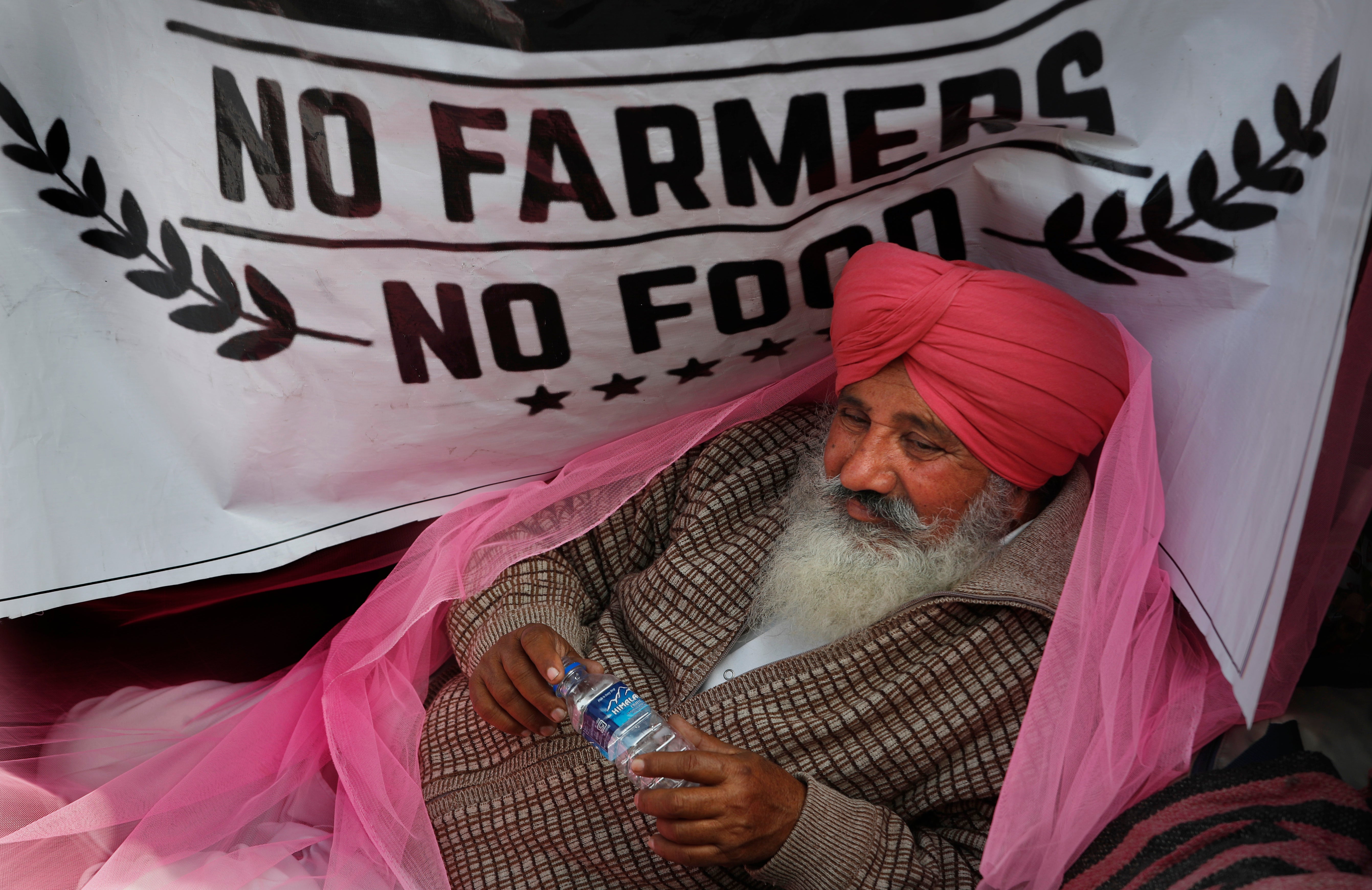India's government toughens stand against protesting farmers
India’s agriculture minister has defended new agriculture reform laws in Parliament, dampening hopes of a quick settlement with tens of thousands of farmers who have been demanding their repeal by blocking three highways connecting the capital to northern India for over two months

Your support helps us to tell the story
From reproductive rights to climate change to Big Tech, The Independent is on the ground when the story is developing. Whether it's investigating the financials of Elon Musk's pro-Trump PAC or producing our latest documentary, 'The A Word', which shines a light on the American women fighting for reproductive rights, we know how important it is to parse out the facts from the messaging.
At such a critical moment in US history, we need reporters on the ground. Your donation allows us to keep sending journalists to speak to both sides of the story.
The Independent is trusted by Americans across the entire political spectrum. And unlike many other quality news outlets, we choose not to lock Americans out of our reporting and analysis with paywalls. We believe quality journalism should be available to everyone, paid for by those who can afford it.
Your support makes all the difference.India’s agriculture minister defended new agriculture reform laws in Parliament on Friday, dampening hopes of a quick settlement with tens of thousands of farmers who have been demanding their repeal by blocking three highways connecting the capital to northern India for over two months.
Agriculture Minister Narendra Singh Tomar made no new offer to resume stalled talks with the farmers who believe the legislation will devastate their earnings by ending guaranteed prices for wheat and rice and force them to sell to powerful corporations at cheaper prices.
Singh said the laws will lead to more private investment in agriculture and raise earnings by setting up warehouses where farmers can store crops and sell them when prices are favorable.
The deadlock turned violent on Jan. 26, India’s Republic Day, when thousands of farmers riding tractors stormed India’s historic Red Fort and unfurled a flag of the minority Sikh community, which is leading the protests. Clashes between the farmers and government forces left one protester dead and nearly 400 police officers injured.
On Saturday, farmers plan to blockade highways across the country for three hours to draw attention to their cause. They say they will not stop their protests until the laws are repealed.
Opposition leaders, including Anand Sharma of the Congress party and Satish Mishra of the Bahujan Samaj Party, accused the government of violating the human rights of farmers by disconnecting electricity and water supplies at protest sites and cutting internet access.
They also objected to the authorities' sharp increase in security at the three main protest sites outside New Delhi’s border aimed at stopping the farmers from entering the capital.
Tomar accused the opposition parties of inciting the farmers by falsely claiming that their land would be taken over by big corporations under contract farming laws.
“This is not true,” he said.